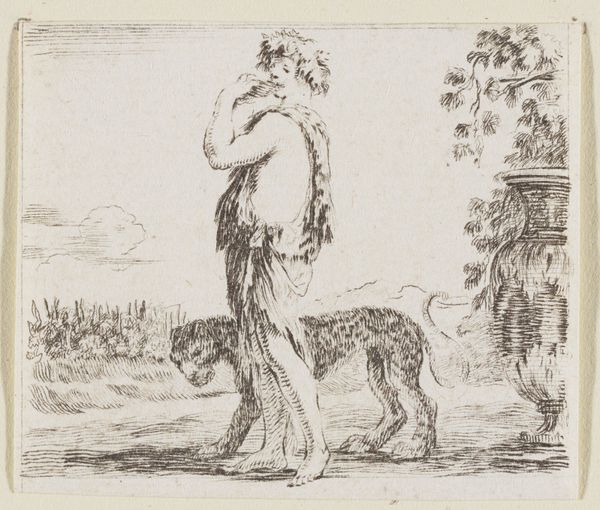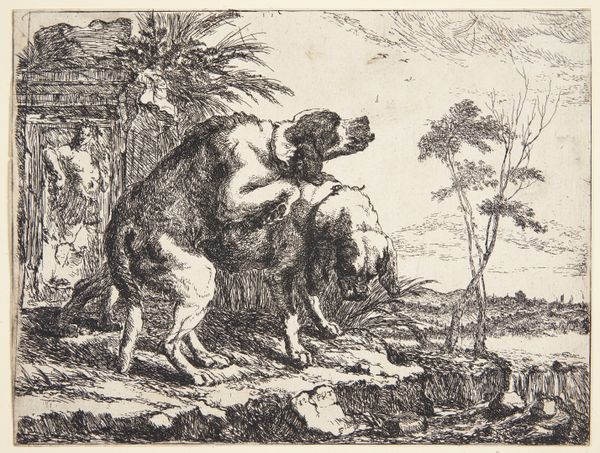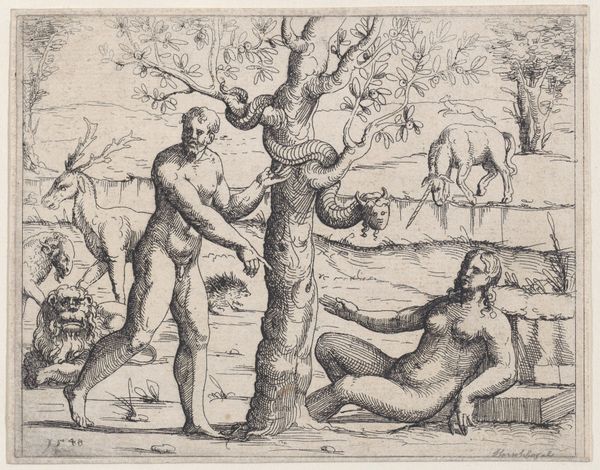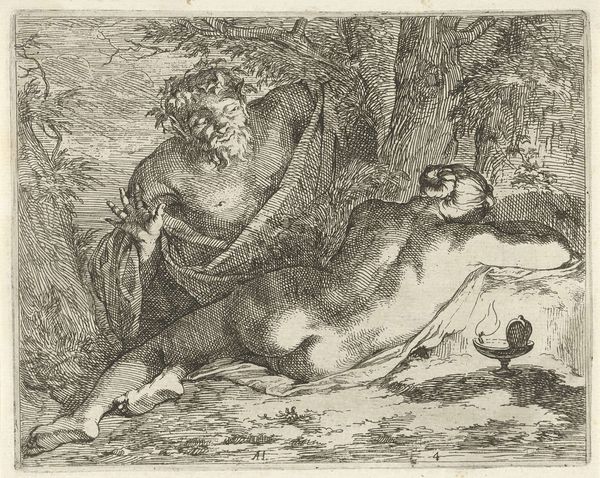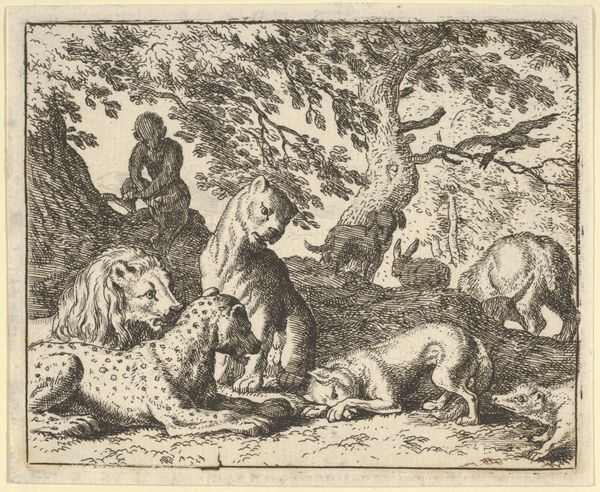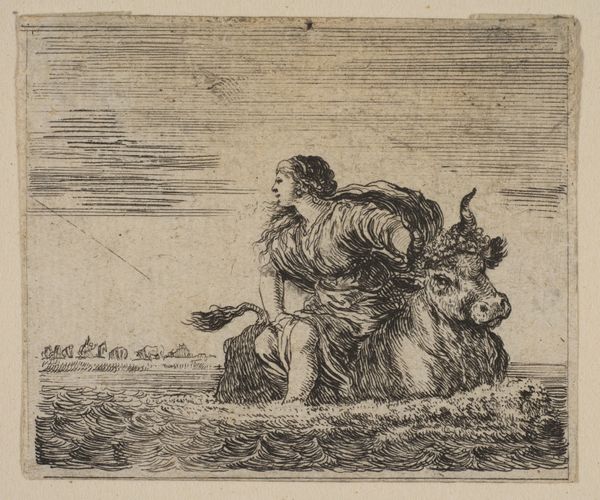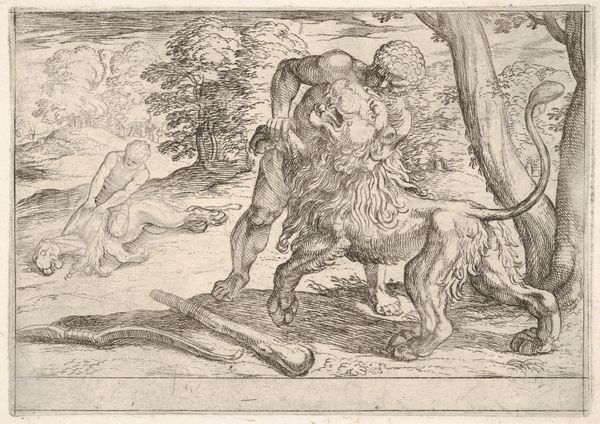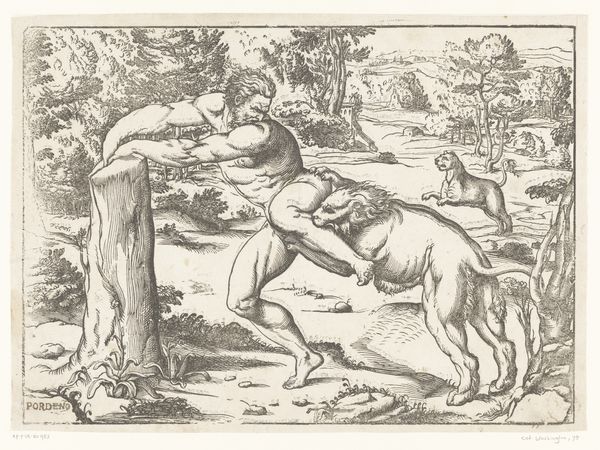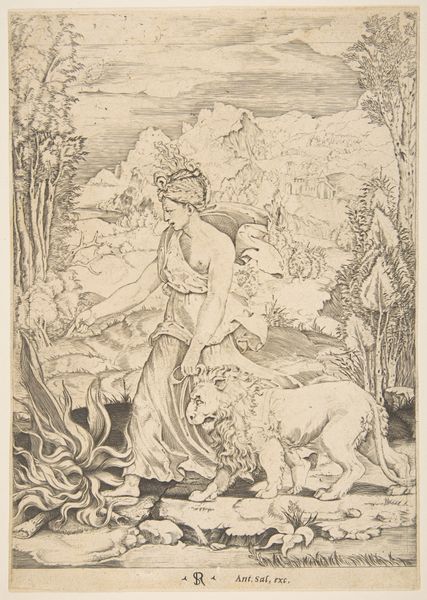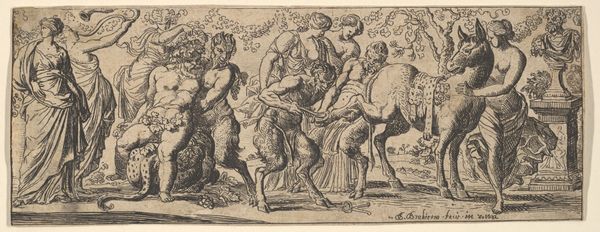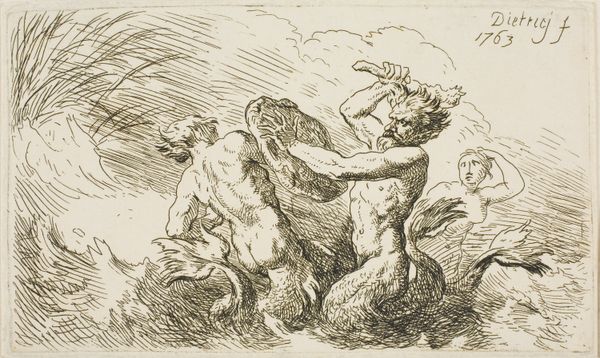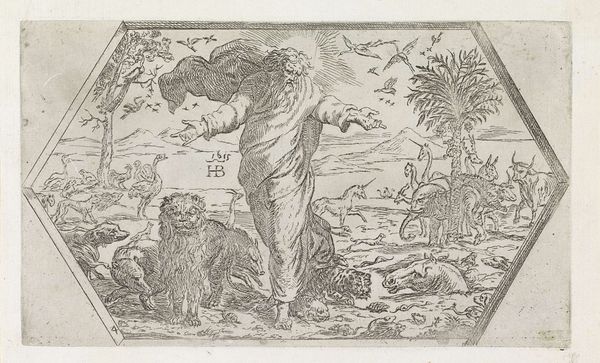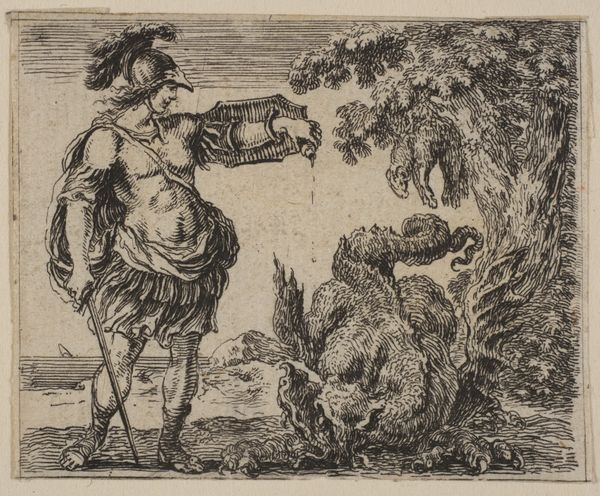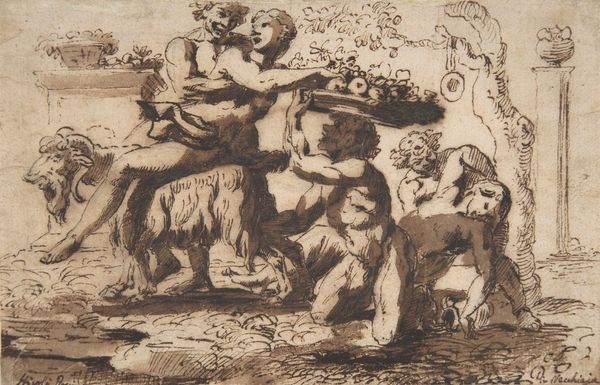
Bacchus, from 'Game of Mythology' (Jeu de la Mythologie) 1644
0:00
0:00
drawing, print, etching
#
drawing
#
allegory
#
baroque
# print
#
etching
#
landscape
Dimensions: Sheet: 1 7/8 × 2 3/8 in. (4.8 × 6 cm)
Copyright: Public Domain
Curator: Stefano della Bella created this etching, titled "Bacchus, from 'Game of Mythology'", in 1644. Part of a series, it resides now at the Metropolitan Museum of Art. The figure seems quite light-hearted and pastoral in a sense, doesn’t it? Editor: Immediately, I am struck by its melancholic mood despite its subject: a reveler and his beast. There is a real sense of alienation here, as Bacchus covers his ears in possible aversion of nature, the land, the 'common folk' on the hill--it is far from joyful to my mind's eye. Curator: Interesting interpretation! I see the Bacchus figure as less melancholic, and more… detached. The landscape surrounding him seems to function almost as stage setting, with its artful but unnatural compositions--very stylized indeed for this Baroque composition. There is this artificial separation that allows him to be almost like a performer of himself. The image as such seems very controlled. Editor: Control is there, sure, within a social artifice. But perhaps that careful stage-setting you noted reflects not just artistic license, but societal constraint, what Judith Butler termed as a regulated performance. Bacchus' gesture, the way he touches his ears, becomes almost desperate, a self-silencing amidst a highly visible display that is hardly liberating. There’s such sadness in the piece-- Curator: An important point. Della Bella's position at the court of the Medici did impose certain representational duties that certainly favored those of classical education, tradition, and order, rather than the messy nature that actually sustains these staged settings! Considering the piece as social artifice perhaps allows an engagement that extends far beyond the subject, into the system of producing the image. Editor: Indeed! And it allows us to question the politics of mythological representations themselves. Who gets to define pleasure and freedom? Bacchus here embodies not simple joy, but an individual, maybe a people or class, estranged from their potential, performing within gilded and authoritative constraints. He isn’t a ‘god’ but merely an illustration--it becomes commentary. Curator: This etching is clearly much more than a simple game or classical representation. Thanks to your reading, it seems a pertinent critique of power, art, and identity of Della Bella’s time. Editor: And, even now, that social framework is critical in our moment to think through today. Thank you!
Comments
No comments
Be the first to comment and join the conversation on the ultimate creative platform.
